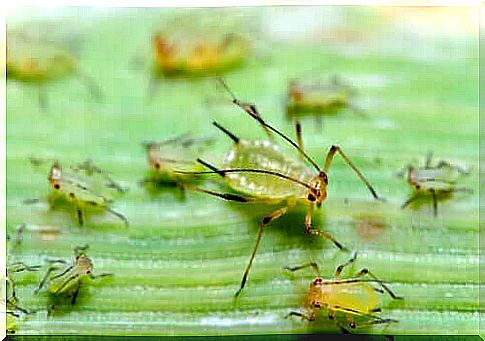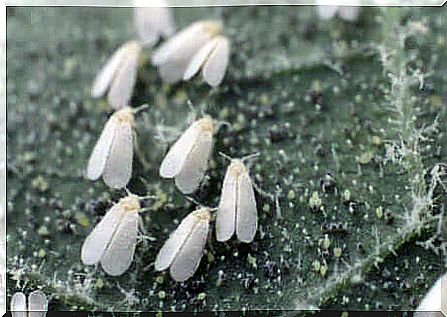The Possible Use Of Insects As Biological Weapons

Insects are the class of animals with the largest number of species on the planet, as they represent almost 90% of all life forms. Their great variety makes them the living beings with the greatest adaptive capacity and, therefore, the greatest probability of surviving in the face of any eventuality. Have you ever stopped to think about the possible use of insects as biological weapons?
In recent years, North Americans have been carrying out research to modify some species of insects to use them as virus propagators that benefit the increase in agricultural production. This is what happens in the project that has the name of Insect Allies (Allied Insects).
Despite their possible beneficial use, some scientists fear that these investigations could be used to develop biological weapons using the modified insects. In other words, using insects as weapons of war, spreading disease or destroying crops.
What is Insect Allies ?
The Insect Allies program is made up of four projects, all conducted by US universities and funded by the Defense Advanced Research Projects Agency. This institution belongs to the Department of Defense of the mentioned country.
Three of them try to use manipulated viruses to protect the crops and make them more resistant: insects are used as vectors of viruses modified in the laboratory.
The Pennsylvania State University project is aimed at growing tomatoes using whiteflies ( Aleyrodidae ).

Two projects are aimed at improving corn, the main agricultural product in the United States. These projects are conducted by Ohio State University and the Boyce Thompson Institute.
The fourth project in the program, conducted by the University of Texas, does not employ modified viruses, but bacteria. The research employs a host aphid bacteria ( Aphididae ) to benefit the beans.
These researches were funded with the purpose of looking for alternatives to increase agricultural production. In other words, to replace the use of pesticides, artificial selection and quarantines, among other techniques.
An essential aspect that these projects must ensure is safety at the time of use. Therefore, each project had to come up with a safety switch to be activated in the event of an emergency, all so that it could be activated or deactivated when convenient.
Some ideas that have been given include genetically generating insects with a shorter lifespan or temporary viruses.
Use of insects as biological weapons
Some biologists viewed this research funded by the US Department of Defense with suspicion. Together, several European biologists published an article in the journal Science about the possible use of the Insect Allies insects as biological weapons: they warned about the risks, without denying the possible positive uses.
Their main concern is how easy it is to turn the advances of such a program into biological weapons, as their use could turn out to be lethal and, in addition, very difficult to trace.
Insects could even be designed to infect enemy crops, making them sterile or less productive.

Another criticism of the program was its commitment to using insects, as there are other ways to spread modified viruses. For example, mechanical dispersal technologies are far more reliable and controllable than the use of thousands of virus-spreading insects.
Furthermore, insects could generate a sanitary and environmental crisis if they reach an uncontrolled spread, which goes beyond the necessary plantations.
However, the biggest concern is the shift that using insects as biological weapons would generate in the way of waging wars, as other nations would modify their own insects and viruses and employ them to counterattack.
Therefore, the modification of animals could become the most common and effective way to bring about a military conflict.
Of course, the United States government has denied the possible use of the modified insects and viruses as biological weapons: it reiterates that its only objective is to make crops more resistant within its country.









